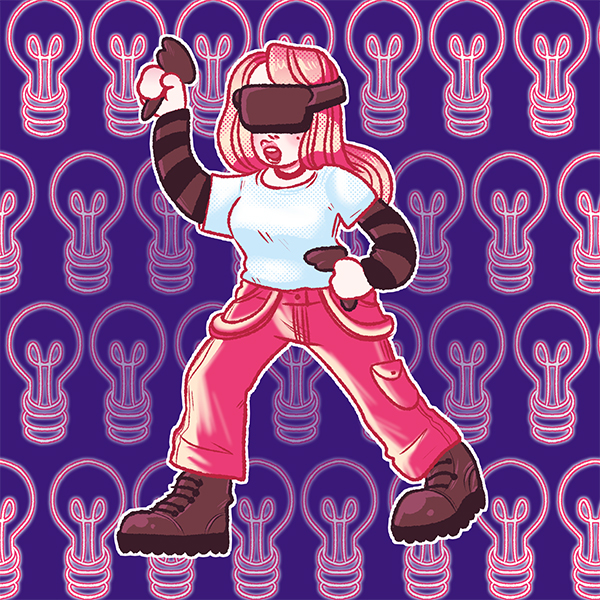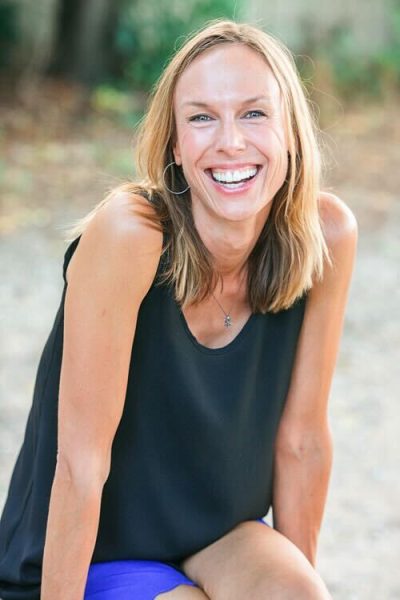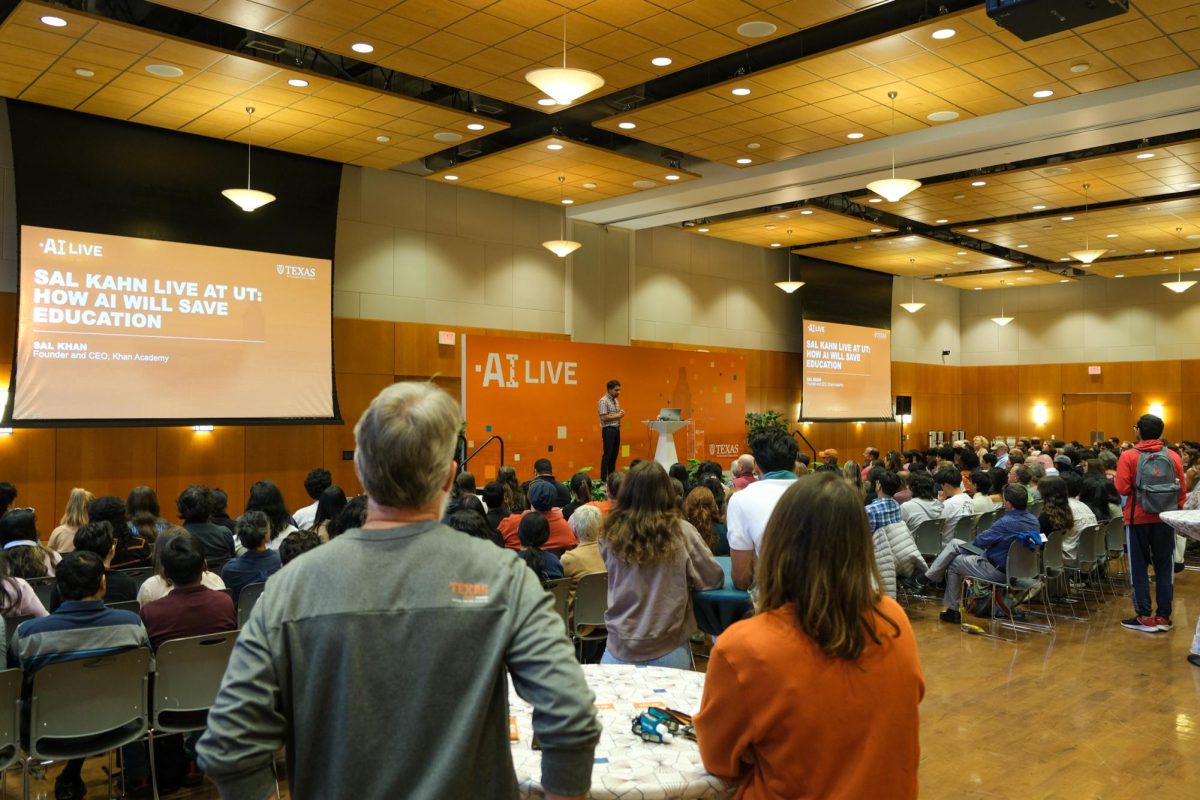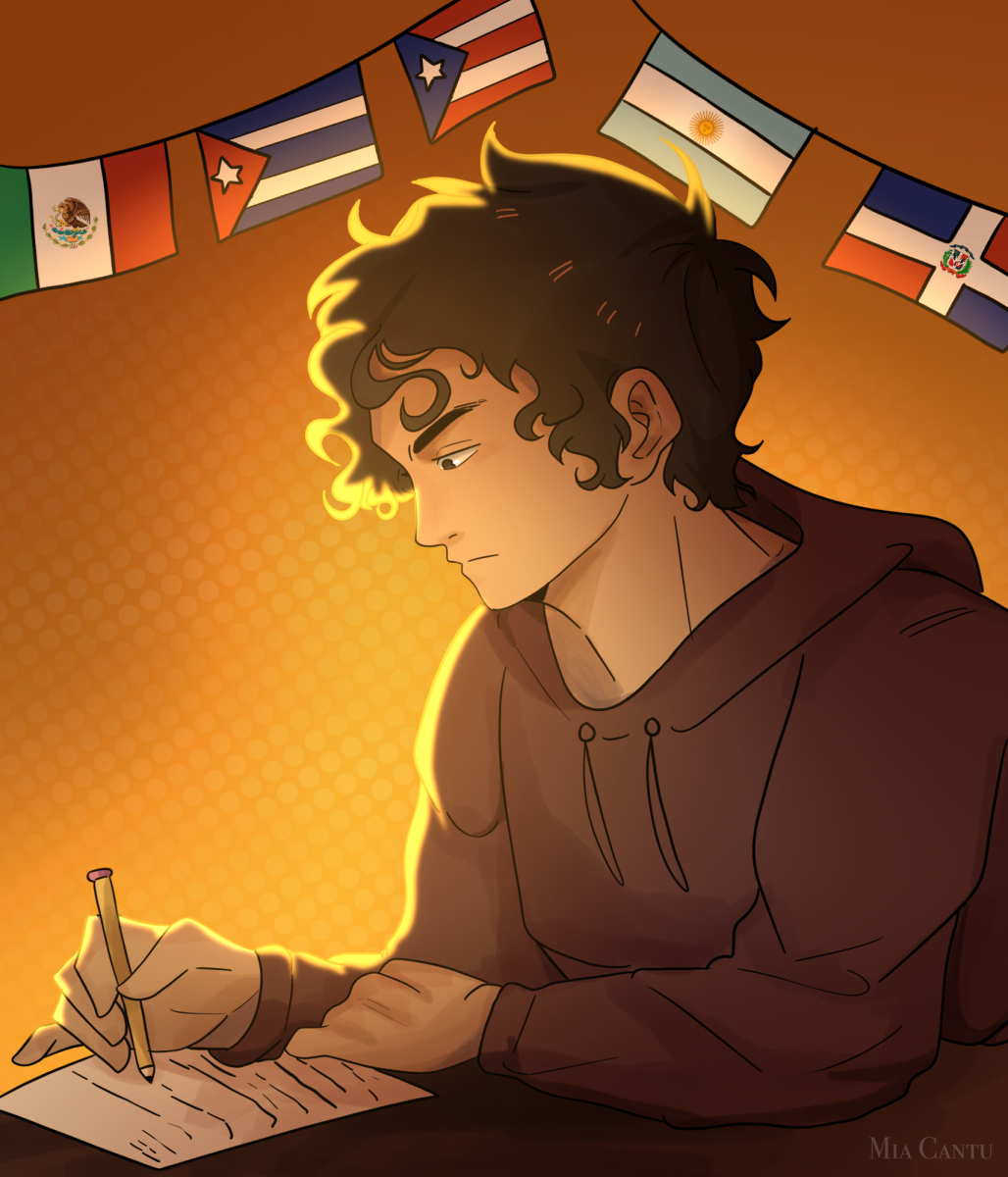UT students explored two room-scale virtual reality setups to interact with virtual reality Monday morning in the Jesse H. Jones Communication Center.
The Moody Imagine Lab, part of the Moody College of Communication’s Innovation & Entrepreneurship program, hosted the showcase that helped begin Entrepreneurship Week, a five-day event presented by Longhorn Entrepreneurship Agency. The events are open to all students to experience innovation through panels and workshops.
“This is a place where you can come hack and prototype and experience and get hands on with hardware that costs $4,000,” said Mitch Chaiet, UT alumnus and Media Innovation and Entrepreneurship coordinator.
Lab manager Josh Ramirez said companies such as The Boeing Company and Ford are investing in VR headsets rather than applications to understand how VR can be used to their benefit.
“Virtual reality and augmented reality are thought to be the next generation, not only for video games or entertainment, but also things like data analysis, medical research … just beyond what we’ve normally considered to be video games,” Ramirez said.
He said Boeing discussed how a specific system that required three months of training only took two days of training with the help of AR at the Infinity Festival in Hollywood. AR projects images or information in front of the user while the user can still see their actual setting. Virtual reality replaces a user’s actual setting with a new experience.
“The method used to be see one, do one, teach one,” Ramirez said. “Now it’s almost flipping it, and it’s starting to merge those categories so you can do one and teach one and learn one all at the same time.”
One example of how VR is used for education and empathy is how CNN political commentator Van Jones made a virtual reality short documentary called “The Messy Truth VR Experience” that shows the perspective a Black person may have when pulled over by the police, Ramirez said.
“It’s already being used heavily in the classroom,” Chaiet said. “Filmmaking classes (and) construction classes are the easiest two ways to get into VR, but biology and medical schools are starting to use surgery simulations.”
Advertising junior Wis Escher said she saw the event on Instagram and attended because she is interested in advanced technology.
“We don’t really go in that (more advanced technology topic in advertising), so I saw this as an opportunity to expand my interests,” Escher said.


















